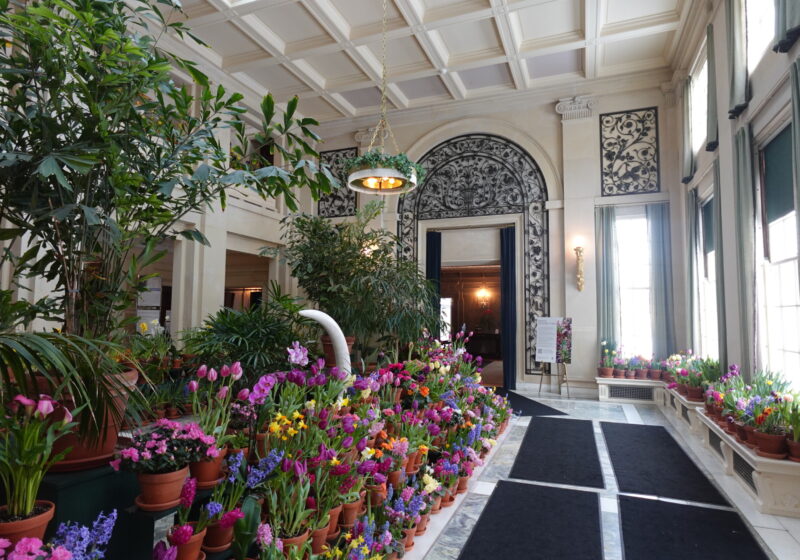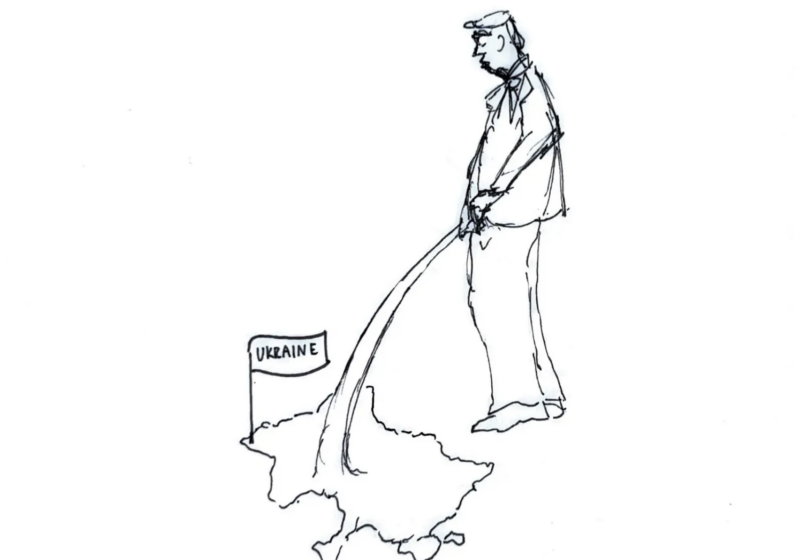With the sudden hiatus and potential disband of the all-female pop group Fifth Harmony, America is looking for another group to communicate narratives of female camaraderie and excellence.
Blackbird Babes, a UR-spawned group, while musically more attune to the pop-rock sisterhood of HAIM than bubblegum of Harmony, definitely brought the focus of womanhood to the forefront during last week’s Women’s History Month-themed edition of Friday Night Live.
They performed mostly covers of the work of female artists along with a sprinkling of songs by male artists, whose songs were chosen for how well they fit the voices and musical preferences of the ‘Babes. The two-hour set featured the soothing harmonies, vocal percussion, and the musicianship of seniors Ava Sauer and Rachel Hammelman, juniors Sarah Maldonado and Siena Facciolo, and first-years Zophia Dadlez and Hannah Serfling.
The inception of their alias is rooted in their association with UR co-ed a cappella group Trebellious. While not all are current members, they are all connected by the Beatles classic “Blackbird,” which is the alumni song of Trebellious.
It was surprising to learn that the newly formed ‘Babes decided to make their debut the Friday night before many of them would take the stage at the ICCA Central Semifinal at the University at Buffalo the following evening. According to Hammelman, their rendition of Sara Bareilles’ “Kaleidoscope Heart” was responsible for the formation of the group. This rendition calls for a five-part harmony, and adding more women to Sauver and Hammelman’s original set would add some much-needed rest before the competition.
Soft yet sophisticated melodies were important for the five piece, as you could almost close your eyes during any of the selections and hear a unified and sometimes homogenous tone, which might result from the group’s heavy a cappella background.
The set was curated heavily by Sauer, who appeared on most of the selections. She began duetting with Facciolo — who is making a name for herself in the Rochester singer-songwriter circuit — and caught my eye early with a well-written hook in her original song “Misery.” The pair later performed “Can’t Help Falling in Love,” which was more reminiscent of a Hayley Reinhart’s Extra Gum commercial version than the original Elvis interpretation.
It was easy to see that Sauer’s choices revealed the brightest portions of her vocal range. Her fluttery vibrato shined, especially in her adaptation of Sam Smith’s “Latch.”
In a move away from the soft, coffee-house sound, Facciolo and Sauer were joined by Maldonado, the designated vocal percussionist, to perform Erma Franklin’s “Piece of My Heart.” During the duet, Facciolo’s vocal choices were reminiscent of Janis Joplin’s cover of the 1967 classic. Maldonado’s vocal percussion added a layer that I’d like to see in Facciolo’s original songs in the future.
Hammelman later joined the set on the keys with an improvisational version of the well-known folk song “Black is the Color of My True Love’s Hair.” The arrangement had intrigue and worked well with the harmonies tossed in from Serfling and Sauer. The singers referred to it as “fringy,” but with more fine tuning, it could become a standout in future engagements.
Stepping aside from the keys, Hammelman shined alongside Maldonado and Sauer in Ingrid Michaelson’s “Die Alone.” With a smooth but faint acoustic guitar strumming from Sauer, Hammelman’s alto blend paired with Maldonado’s percussion and added a cohesion and allure that is missed in the original.
The surprise of the evening came from the stage presence and musicianship of first-year Serfling. She was versatile, shifting from accompanying herself on the ukulele to a standard six-string. Her playing looked comfortable, and she commanded the stage with a potent instrumental sound. Accompanying her lead vocal were harmonies from classmate Dadlez.
Hammelman and Sauer, as two seniors about the graduate, appropriately performed “For Good” from Wicked. Vocally it wasn’t the most memorable performance, but its emotion and aura made the duet compelling and successful. The message of “For Good” served as a central theme for the set. These female vocalists have all grown musically and beyond, and they clearly owe it to each other.
As they sang Bareilles and Michaelson’s “Winter Song,” they asked their audience, “Is love alive?” I think the Blackbird Babes answered this question not only in their set, but in their clear adoration for each other.







